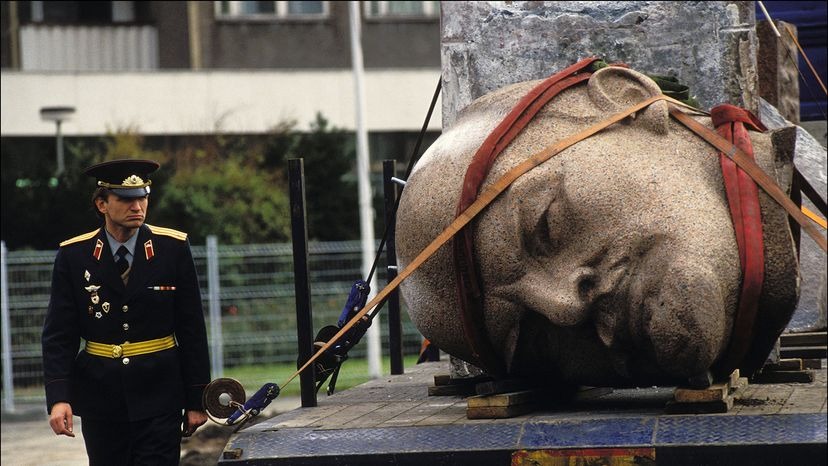April 9, a date of profound significance in Georgia’s recent history, stands as a testament to the nation’s resilience. It was a day that bore the weight of tragedy for some yet also kindled a flicker of hope for others. Despite the overshadowing tragedy of the Soviet Union’s collapse in 1989,
April 9 emerged as a day of triumph. On this day, Georgia, with unwavering determination, affirmed its independence. It sent a resounding message to the world, particularly the Soviet republics, that its quest for freedom had already transcended the realm of aspiration. It was now a tangible reality, with further progress on the horizon.
Authorities officially declared the irreversibility of the Soviet Union’s collapse on April 9, 1991, which officially took place in December 1991, leading 15 countries towards new paths. However, like other republics, the subsequent events did not meet the Georgian people’s hopes. Russia, the architect of Soviet modernization, did not quickly grasp the collapse of the Soviet Union. Up until that point, Georgia had paid a steep price—engaging in wars in Samegrelo and Abkhazia, enduring the “Great Patriotic War” production strike, and suffering the occupation and annexation of its most beautiful territories.
Thirty-three years after the Soviet Union’s official collapse, the danger still looms. Many hope that the ongoing war in Ukraine will mark the end and lead to Russia withdrawing from its imperialist ambitions unless we are still being deceived.
A Brief Historical Recap.
In the mid-1980s, the Soviet Union declared a transformation. Gradually, the public was introduced to “foreign” and “forbidden” fruits. Take films, for instance—’Lost in America’ appeared on screens, and Stallone’s and Schwarzenegger’s action movies were broadcast on television. The ” awakening ” process might not have been evident to the people at that time, but the dissolution of the Soviet Union was becoming increasingly evident. National movements were gaining ground and becoming more popular in the republics, especially in Georgia, with active involvement from the USA. Let us recall Ronald Reagan’s famous words that the “evil empire” must collapse.
Ultimately, everything logically concluded—the USA won the “Cold War,” the empire fell, and America moved past this issue.It seemed that from across the ocean, they believed they had achieved their goal, defeated the Soviet Union, and should now focus on democratizing the Near East. Was this a mistake? Was the Soviet Union genuinely defeated to the end?
Indeed, at that time, Russia was not a strong state, but it still managed to exert influence over the weakened republics. KGB agents were still in place, their cadres intact, the republics lacked international support, and they were left alone to face the “great beast,” with even the “older brother” no longer posing a threat, nor were national governments being removed or former communists returning to power. Soon, the CIS (Commonwealth of Independent States) was formed, and apart from the Baltic states, others briefly climbed on the Western bandwagon.
Another devastating factor emerged: a man came to Russia who called the dissolution of the Soviet Union a geopolitical catastrophe and made it his mission to restore it possibly.
And America returned.
The early 90s began when the most freedom-loving countries orchestrated colorful revolutions. However, Putin later managed to instigate some counter-revolutions there.
What was the West’s response? It decided to mend relations with Russia and establish a “friendly” relationship.Putin was given Georgia in 2008, then Donetsk, Luhansk, Crimea…
They awarded him the Winter Olympics at a summer resort, a World Cup in football, and they handed him the “reset button”…
Did Putin want more? They assured him that everything would work out.”
Running parallel to the new ‘Cold War,’ a new ‘cold confrontation’ has emerged, as seen in Syria, where Russia traditionally represented the Eastern side. Unlike the previous confrontation, this ‘Cold War’ was brief—a real war soon erupted. Putin’s aggression in Ukraine, his complete occupation, was met with strong disapproval from the West. The war that ensued was a stark reminder of the potential consequences of such aggression, clearly defining the end as either the dissolution of the connections among states or their unity.
USSR was a unique country with robust agriculture, industry, and natural resources, yet the standard of living remained much lower than in Europe or America. Internal conflicts also persisted: some nations did not want to live together, becoming evident after August 1991. Nevertheless, Georgia was already experiencing a surge of rebellion, seeking freedom and independence. Up to that point, those favoring Russia’s freedom understood that their country’s destiny hinged on the dependence of many countries and nations on Russia, showing little concern for their own citizens’ living conditions. Why does Putin spend billions to annex cities in other countries instead of investing in the lives of his people in Ukraine, Georgia, Armenia, Azerbaijan, and Central and Eastern Europe?
Regarding geopolitical projects, their lifespan was as prolonged as that of Hitler’s Germany, which was also meant to last a thousand years. This vision was a utopian ideal poorly suited to the evolving geopolitical landscape. After the First World War, European and possibly Euro-Asian tendencies began shaping new, non-imperialist countries. The creation of SSRK was equally unrealistic, yet anticipation lingered. With the resurgence of imperialism and nationalism, conflict ensued. The return to the framework of international relations raises concerns as annexation continues—Crimea, Eastern Ukraine, Donbas, Georgia… This process mirrors 1991 not as the end of the empire but as the beginning of its decline. Russia’s transformation into a normal state would signal the end of the empire. The feasibility of this transformation remains another question.

